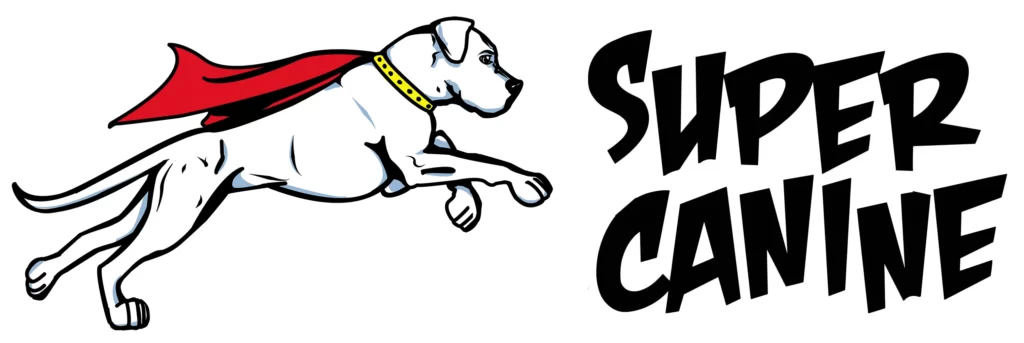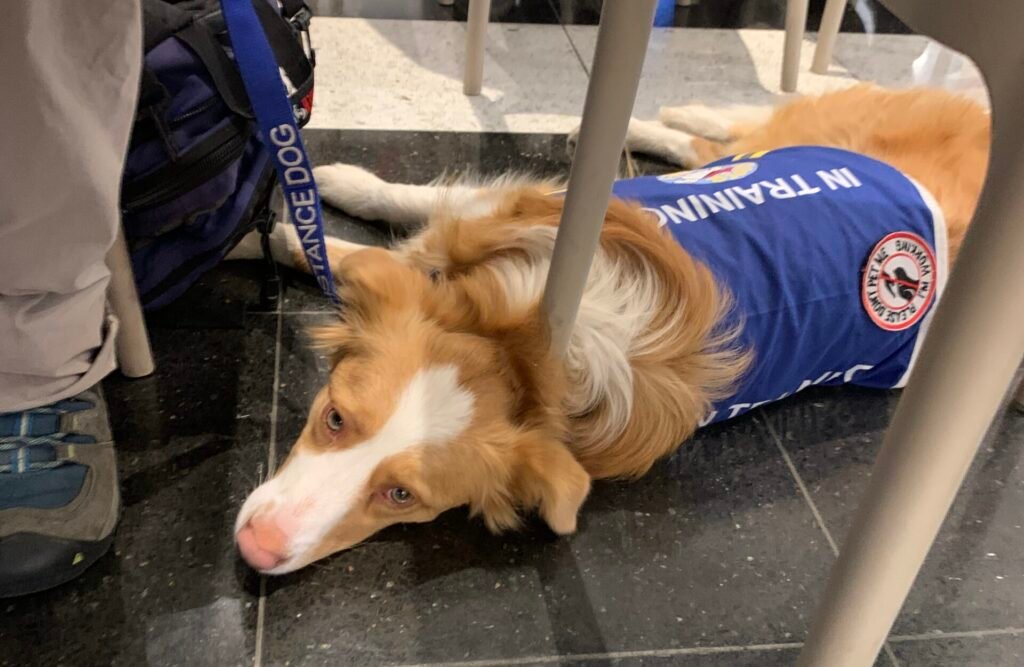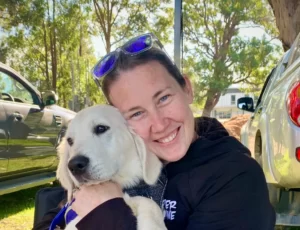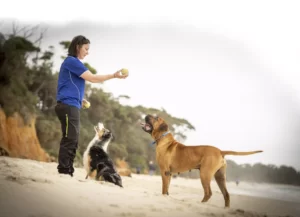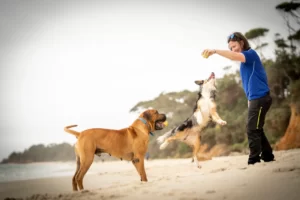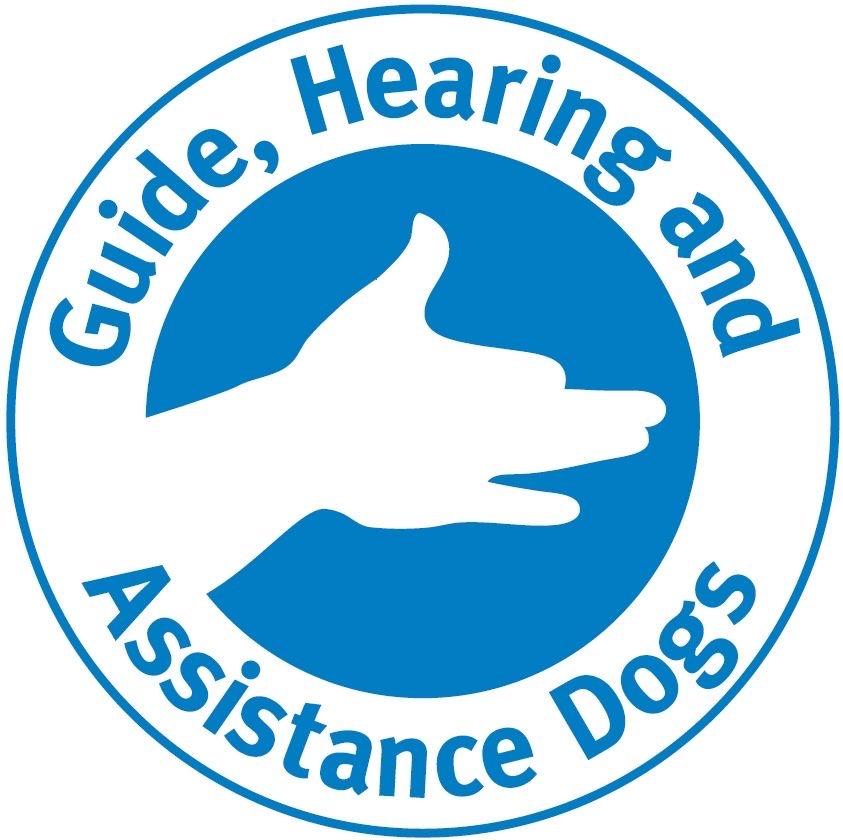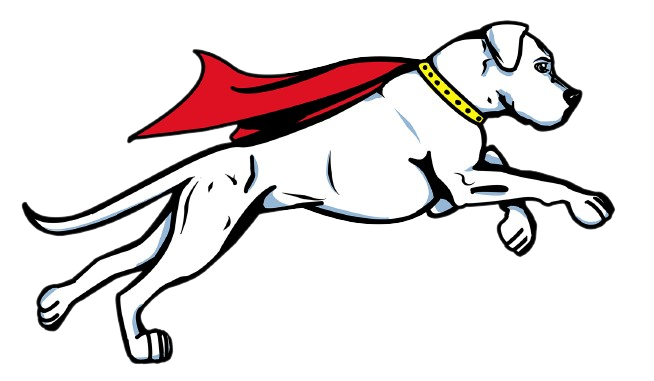Basics In Dog Training
The first phase of assistance dog training methods are very similar to pet dog training methods.
Assistance dogs must be reliable dogs that can perform identifiable physical tasks and behaviours for the benefit of a person with a disability. The dog must also be safe and effective in public places and public passenger vehicles. In order to train a dog to this standard we use positive, reward-based training methods. This creates dogs that enjoy working, have an excellent relationship with their handler and are able to consistently and reliably assist their handler in any environment.
In the early teaching phase of training, we use a continuous schedule of positive reinforcement in which the dog is rewarded for every correct behaviour they offer and even a good effort is rewarded at this stage in order to keep the dog motivated and happy to try their best. We use a marker word such as “yes” or a clicker to clearly mark and reward the correct behaviour. This stage is also trained in a low distraction and familiar environment.
As the behaviour being trained becomes more reliable and the dog understands what is being asked more clearly, we move to an intermittent schedule of reinforcement. At this stage the dog is rewarded only for the best version of the particular skill.
Assistance Dog Skills
For example, when teaching a dog to turn a light switch on or off the dog would only be rewarded, usually with food, for actually getting the switch to move. We use successive approximation or shaping to teach specific tasks like this. If the dog doesn’t complete the behaviour or gets distracted or confused, we will wait it out, possibly offer some encouragement in the required direction and wait for the dog to offer the correct behaviour, then reward for getting it right.
As the dog becomes increasingly reliable and consistently performs the required skills or tasks being trained, they move into the proofing phase. This is where distractions are added in, varied environments and increased complexity of skills. The reward at this stage of training can often be at the completion of a session rather than during training or an outing.
After a long day of work as an assistance dog, the dog can be rewarded with a game of fetch or food depending on what the individual dog enjoys most. This will keep the dog motivated, happy and maintain a good healthy relationship with the handler.
Super Canine does not condone the use of punishment avoidance techniques.
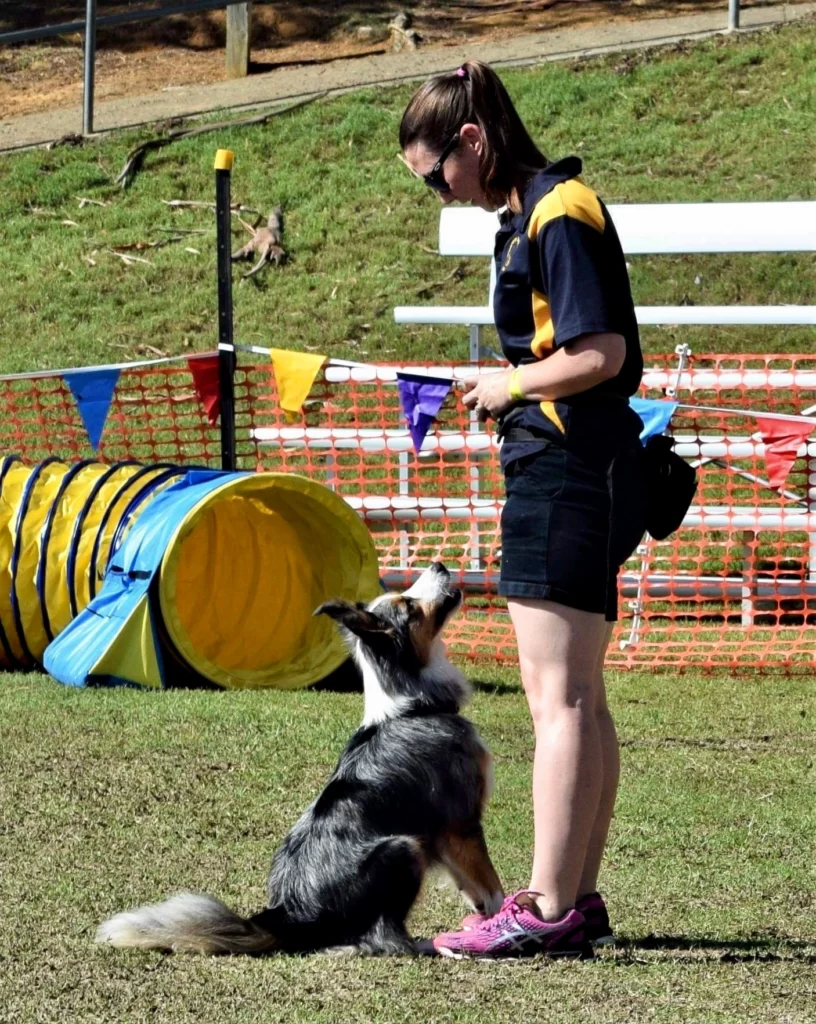
What if the dog & I fail to reach the Public Access standard?
There is a high potential for failure even after you’ve trained the dog.
Many owner-trained dogs are removed from training due to fear, aggression, lack of handler focus, overly friendly/excitability, health issues that develop or inability to cope with the ongoing stress of being an assistance dog.
Consider what would you do with a failed dog or a retired dog? Re-home him? Keep him and train another?
Look at your disabilities, income, housing etc. and consider how those would affect your decision.
Entering the Super Canine Assistance dog program is not a guarantee that you will pass the Public Access Test and become a certified assistance dog team.
Research the PAT test thoroughly before sitting the test.
Super Canine has the right to withdraw a dog from the program at any time if either the dog or handler is not deemed suitable.
How do I train an assistance dog?
Initially, you and your dog will be doing rigorous amounts of training to achieve the high standard required from both of you.
Down the track, dedicated training may decrease, however you must continue to maintain a certain amount of ongoing training over the dog’s working life. If the training doesn’t continue, your dogs’ incredible abilities will deteriorate.
Some dogs even start to develop unwanted behavioural problems.
Training continues for the entire working life of the dog. It is up to you to stay in touch with your trainer and uphold the high standard of training your dog needs to display at all times.
Please budget for ongoing training costs over the dog’s lifetime.
For detailed information on Super Canine Training Costs please check out our pricing information page.
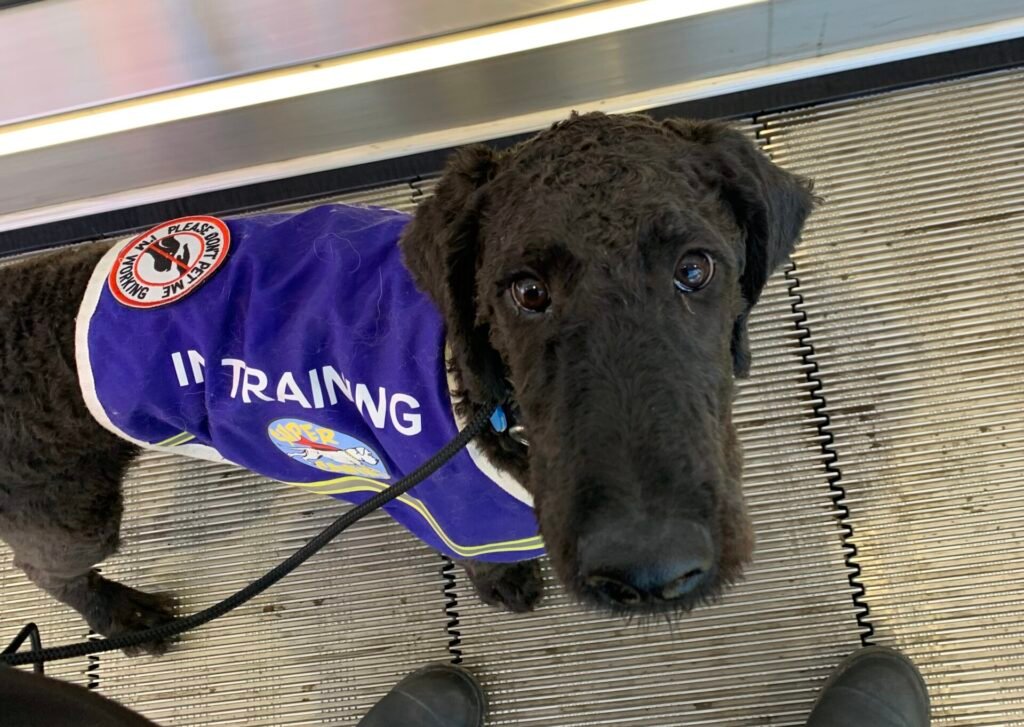
Hungry For More?
Learn more about the stages of development or check out our GHAD Training FAQs

